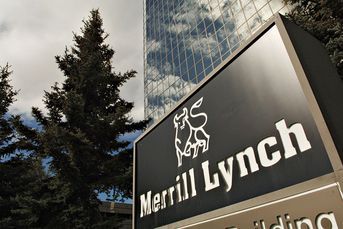Schwab’s next target? Financial advisers
 1
1
Custodians are increasingly under pressure, and some are responding by making a push into the advisory business.
There’s a showdown looming between financial advisers and the custodians that safeguard their clients’ money. It’s been brewing for some time, and the move by Charles Schwab Corp. on Tuesday to offer commission-free trading makes the clash all but inevitable.
Retail investors know Schwab as a discount broker, but it’s also a custodian for financial advisers who break away from banks, insurance companies and other financial firms, or set up shop on their own.
Those advisers need someone to house client accounts and execute trades, and firms such as Schwab, Fidelity Investments, Bank of New York Mellon Corp. and TD Ameritrade Holding Corp. are popular choices. (My asset-management firm works with Schwab and TD Ameritrade.)
It was a blissful union. Clients paid financial advisers a fee for constructing portfolios and financial planning, typically a percentage of assets under management, and custodians collected interest on clients’ cash and margin, distribution fees from mutual funds and, of course, commissions on trades.
Lately, though, the relationship between advisers and custodians has become strained. While advisers continue to collect their fees, custodians are increasingly under pressure.
Roughly 40% of Schwab’s revenue last year came from proprietary mutual funds and ETFs, third-party mutual funds, commissions and — importantly — advisory fees. The value of all but the latter is now zero or trending in that direction.
The other 60% of Schwab’s revenue, which is interest income, primarily from margin loans, bank loans and fixed-income investments, isn’t likely to make up the difference. Schwab can only boost interest revenue by gathering more assets or praying for higher interest rates.
Few expect rates to rise any time soon, and Schwab’s competitors are now offering free trades of their own, so there’s little reason for investors to flock to the broker. TD Ameritrade announced it will cut its commissions to zero mere hours after Schwab, and ETrade Financial Corp. followed on Wednesday. The market reaction? Investors have roundly hammered discount brokers.
Less than zero
As custodian-brokers raced to the bottom on fund fees and commissions, advisory fees have remained remarkably resilient. The average financial adviser continues to collect roughly 1% a year on accounts of $1 million, and more for smaller accounts.
Industry observer and financial adviser Michael Kitces isn’t surprised. “When price competition breaks out, whoever is closest to the client wins,” he said. That’s why advisers have been able to maintain their fees even as trading commissions and expense ratios for mutual funds and ETFs have plunged, in part due to advisers’ growing preference for low-cost funds.
It may also explain why investors are sticking with advisers despite growing competition from automated investing platforms that typically charge lower advisory fees, and in Schwab’s case, no fee (although Schwab makes money on its robo-adviser through proprietary ETFs and interest on cash balances).
Investors may eventually feel comfortable handing their money to the bots, but most still seem to value proximity to human advisers.
[Recommended video: Michael Kitces: Efficiencies become crucial for advice firms when they grow]
The predictable result is that custodians, and even some mutual fund companies, are keen on getting closer to clients. Schwab, Fidelity and Vanguard Group have all made a big push into the advisory business in recent years.
While hard numbers are hard to track down, Mr. Kitces estimates that those firms now account for “a material slice of the overall market for financial advice and a huge portion of the cumulative growth of advisory assets over the last four years.”
Custodians are likely to win. They have the expertise to navigate the dizzying array of mutual funds and ETFs sold to investors, plus the size and reach to undercut advisers’ fees and the resources to build technology advisers can only dream about.
That doesn’t mean independent financial advisers will disappear, but many won’t survive the onslaught, and those who do can expect a pay cut.
One adviser summed it up, saying he’s “looking for the catch.”
Well, here it is: When the dust settles, financial advisers won’t be eating lunch — they’ll be on the menu.
[More: How to tell good brokers from bad ones]
Nir Kaissar is a Bloomberg Opinion columnist covering the markets and the founder of Unison Advisors, an asset management firm.
Learn more about reprints and licensing for this article.








